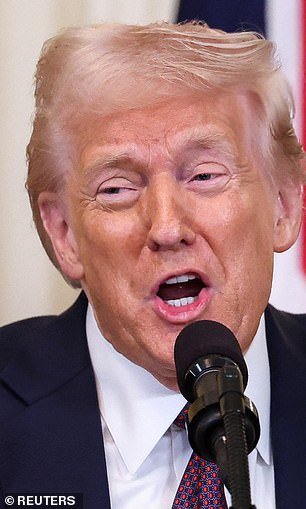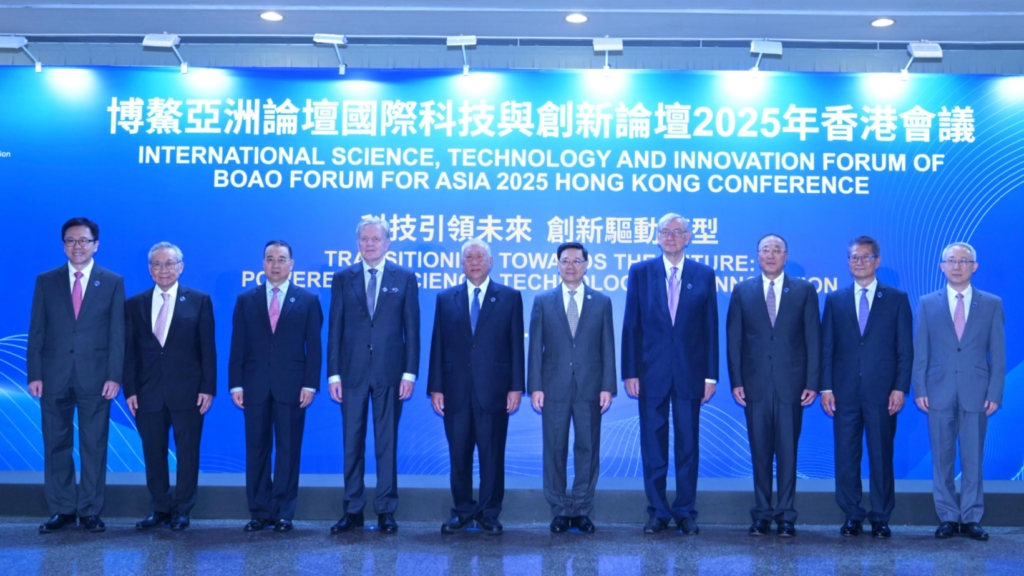
BEIJING, CHINA – NOVEMBER 9: Chinese President Xi Jinping and U.S. President Donald Trump attend a … More welcoming ceremony November 9, 2017 in Beijing, China. Trump is on a 10-day trip to Asia. (Photo by Thomas Peter-Pool/Getty Images)
Some news and media outlets, including Financial Express, IDN Financials, and Hindustan Times, have reported that China has banned Bitcoin ownership by private individuals. News of this new “ban” by China has spread and perhaps led to some investors to sell their Bitcoin. Yet there was no official statement from any of the relevant Chinese authorities – and it seemed like there was no link in the reporting chain – leaving many scrambling to figure out what was happening.
The cited Binance report but no official announcement
The Financial Express report cited an unlinked “report by Binance.” Though it’s hard to track exactly where this was, Binance’s research section (which is staffed by the official Binance team) does not feature any updates on Bitcoin and China. The contributor writing this article has reached out to X to ask them for comment, but there has been no reply. Perhaps the Financial Express referred to the following report on Binance Square, an open forum and social hub where people from outside the Binance team can sign up and post analyses. In the report, one of the earliest found on Binance Square on the topic, a link to a source goes to Binance’s BAN/USDT ticker as a citation.
As of the latest, there does not appear to be official announcements from the Cyberspace Administration of China (responsible for policing the app stores and the Chinese Internet), the Supreme People’s Procuratorate (the highest national authority for legal prosecution in China), Chinese courts, the People’s Bank of China or its subsidiary SAFE (State Administration of Foreign Exchange) – which issued many of the regulatory notices, including a 2013 ban on banks using Bitcoin that heralded the wave of restrictions.
There was also no statement from the Ministry of Industry and Information Technology, the National Financial Regulatory Administration (the successor of the China Insurance Regulatory Commission and China Banking Regulatory Commission that were a part of the 2013 regulatory notice that shapes much of Chinese jurisprudence on Bitcoin), the China Securities Regulatory Commission (also a 2013 regulator notice co-signer), the Central Financial Work Commission and the Central Financial Commission – two state organs set up by Xi Jinping to have oversight over the Chinese financial system and the Chinese Communist Party’s role in the financial system.
A history of Bitcoin bans and where China is now
China has had several restrictions on Bitcoin – from province-by-province mining restrictions to an exchange ban. The history of China imposing bans on Bitcoin has led China to have a unique place in the Bitcoin ecosystem, as a sort of foil or a meme that can be used to dampen prices with new news. The market is thus primed to expect this sort of news.
However, Chinese courts and regulators have consistently maintained that Bitcoin is property and private ownership of Bitcoin is protected under the law. Not understanding what is happening in China with Bitcoin can make media flurries that move Bitcoin price – unless one looks deeper.
Understanding the bans and how Bitcoin might react
The restrictions that have taken place are focused on using Bitcoin as currency and as a potential way for “money laundering” and escape from capital controls, such as the yearly limit the Chinese government puts on foreign currency its citizens can acquire.
It is essential to understand that a “ban” would be more than just a fiat announcement; it would require official announcements from one or multiple agencies. Bitcoin is stronger than any one country being able to “ban” it completely and any one leader now.
Bitcoin is unlikely to be unrestricted or banned further in the Mainland.
Analysis of the Bitcoin bans and current state in China shows that China is unlikely to take the step of further restricting Bitcoin, which the Chinese state authorities warned about for years when it came to mining restrictions, and which was ultimately announced in public by a Vice Premier of the State Council, Liu He, who was Xi’s chief economic advisor on US-China trade relations and at the time, one of the 24 most powerful people in the Chinese system as a member of the Politburo which governs Chinese politics. Even today, many of the ways Chinese courts look at Bitcoin stem from the 2013 regulatory notice.
It’s also unlikely to undo the restrictions it’s placed in – with any China news that is officially backed likely going to be officials studying on Bitcoin, op-eds, or opinions from professors and/or officials. China can still move Bitcoin price – from Chinese people buying it in increasing quantities to the Chinese government trying to understand what to do with seized Bitcoin. But it’s unlikely to come in the form of a dramatic policy announcement.
So, the likely thing to look into on China news is that if it doesn’t fit the status quo, it will likely require deeper diligence. Look more carefully at news from China before making any Bitcoin decisions.








